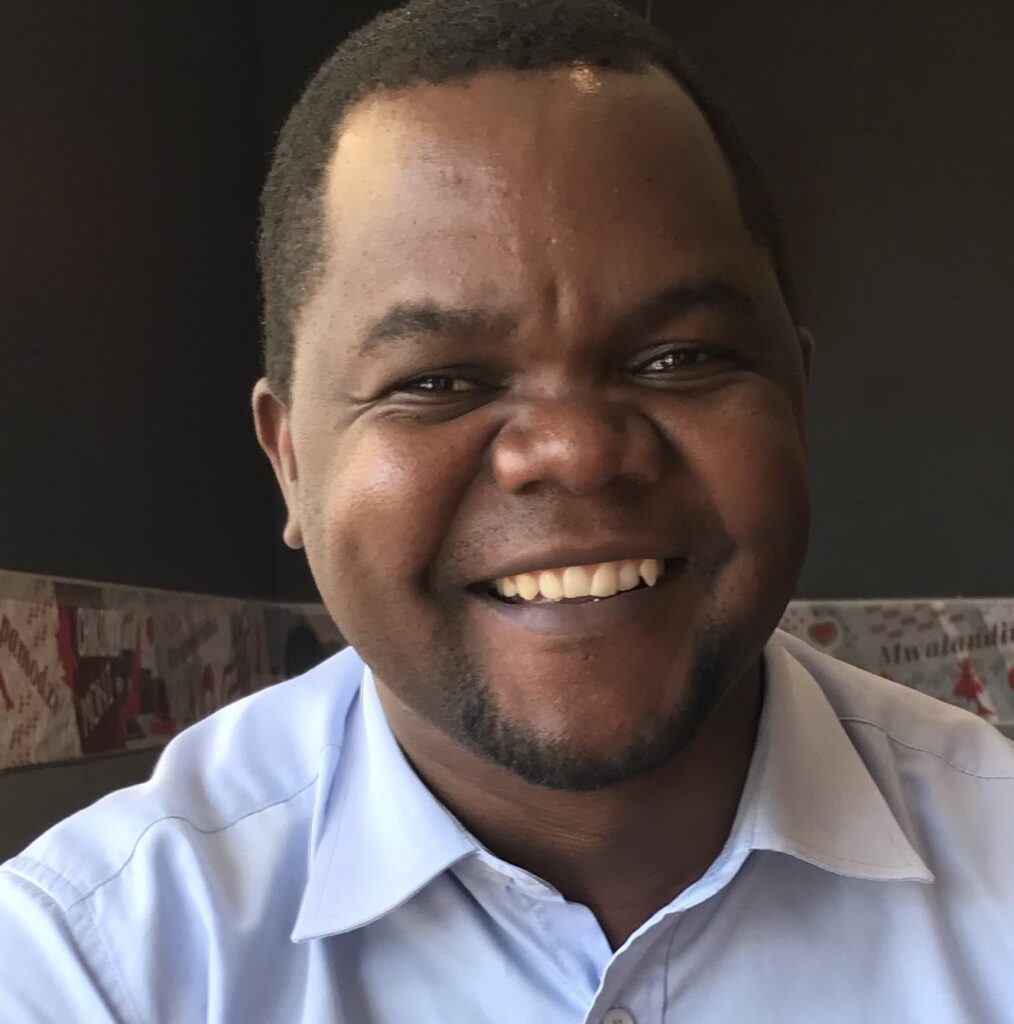Born on the 27th of December 1979 Wilson would be the 6th, and last boy, of 7 children in his family. Home was a farm on the eastern edge of the Kasungu National Park in Malawi, Central Africa. In 1983, a year after the birth of Wilson’s youngest sister, the family moved to his father’s village in the neighboring Dowa District. A few months after they settled in their new home his father died, an apparent victim of a poisoning. After that, his mother packed up the children and moved to her home village 66 kilometers away. Chandiwo Village became home for the family and while life seemed normal to Wilson, it was anything but normal for his brothers and sisters. Life was very difficult. They were short of food, clothes, and life in general. There was not enough money to pay their school fees, and they stopped going to school. Stephen, the fourth born, was the only one of his siblings able to continue. The limited amount of land the family possessed was not enough to survive. The remaining portion of family land was occupied by relatives.
Wilson entered school, and with his friends, started attending a primary school 13 kilometers (over 8 miles) south of the village. While this was a long walk each day, in time they shifted to other schools that required a 15-kilometer (9.3 miles) walk to and from school each day.
Tembo had a keen desire to learn and attending the Madisi Primary School only heightened his desire. Passing a post office daily, he could hear packages and envelopes being stamped. Wishing he could work there caused him to study in school with more intensity. Meeting a police officer in the trading center and learning more about his work and its possibilities, heightened his desire to work even harder in school.
However, as with his siblings, the need for school fees impeded his progress as well. He was in, then out, then back in again. He remembers when he was in standard 5 that he was “chased away” from school because he could not pay the three Kwacha in fees. The fee was equal to about $1.00 at the time. Only through the intervention of Mr. Joshua, the Headmaster, was his performance recognized and he was allowed to remain in studies.
In 1997 he was baptized, and in 1998 selected to attend high school at the Madisi Secondary School. This brought new challenges, fees, a required uniform, books, and other necessities. This time a relative, Amos Kajawa, stepped in to help with the educational expenses. From a low-paying job as a driver, Amos sacrificed and struggled as he paid Wilson’s expenses. The job in the post office started to fad as a new desire came to the surface. When Wilson sat for university entrance examinations in April 2001, journalism topped the list of the three-course choices available to him.
In September 2002 he was accepted for a job at Blessings Hospital in Lumbadzi. He planned to obtain financial support for training in journalism, but this did not materialize. A job in the supply warehouse became available and he applied. Dick Stephens, of the Malawi Project recalls the interview. “That day we had two final candidates for the one opening to oversee and manage the thousands of dollars in medical supplies coming into the country. Wilson was one of the candidates and Robert Chilemba was the other. Chilemba had several years of experience with a sugar plantation north of Nkhotakota, and his experience and resume made him the perfect candidate for the job. Tembo was young and inexperienced.”
“There was no doubt we needed to hire Chilemba. However,” Stephens notes, “Tembo had a depth of understanding and wisdom beyond his years that offered so much potential for the future that I could only recommend that we hire both of them.”
The hospital’s director agreed and both Tembo and Chilemba were added to the staff. Working closely together they formed an excellent team, and supplies flowed out to the hospital and many other medical facilities in the central region of Malawi.
In time Chilemba left to return to his home north of Nkhotakota, and eventually form a very successful community development organization to serve the needs of his community. Tembo would remain with Blessings until 2008 when the Malawi Project opened a central warehouse for supply distribution in Thondwe, near the southern commercial center of Blantyre. By now Tembo was married and he willingly accepted the transfer to Thondwe.
Over the next ten years, the aid distribution of the Malawi Project increased nationwide, and Tembo grew with the challenge, maintaining oversight of the Project’s diversified programs, while at the same time he and his wife raising two children, then three more children from a sister who passed away. He also gladly accepted responsibility as the Procurement Officer for the mission where the MP warehouse was housed and additionally oversaw operations for the Namikango Mission Clinic in Thondwe. He also served as Youth Director for a nearby congregation, and organizational director for youth meetings in the Zomba District of Malawi. Wilson holds a BA in Logistics and Supply Chain Management, which he achieved in late 2018.
In 2018 Tembo headed up the establishment of Action for Progress, a Malawi not-for-profit, organization to work beside the Malawi Project and other aid assistance programs throughout Malawi. Tembo serves as the Executive Director for this group.
Today, Wilson, his wife, and their children live in Lilongwe, where Alice is pursuing a degree in nursing and Wilson oversees nationwide operations for Action for Progress.

